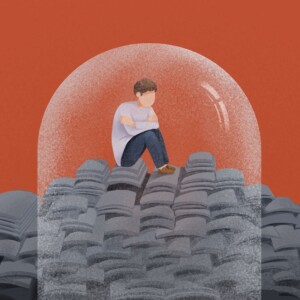
Tuesday Jan 16, 2024
The Coddling of the American Mind: A Revelatory Journey into the Decline of Free Speech and Resilience
What are the three rules of The Coddling Of The American Mind?
- Rule of Fragility: What doesn't kill you makes you weaker – This rule emphasizes the potential harm caused by shielding individuals from discomfort or challenging ideas. It suggests that by avoiding difficult situations or controversial thoughts, individuals miss the opportunity to develop resilience and the ability to confront adversity.
- Rule of Emotional Reasoning: Always trust your feelings – This rule highlights the tendency to prioritize emotions over objective reasoning. It argues that relying solely on feelings can lead to irrational decision-making and hinder the pursuit of truth and critical thinking.
- Rule of Us vs. Them: Life is a battle between good people and evil people – This rule emphasizes the dangerous trend of viewing the world in simplistic terms of good versus evil. It warns against the divisive consequences of considering people with different perspectives or opinions as inherently evil, as it stifles open dialogue and constructive debate.
What can we learn from The Coddling Of The American Mind book?
"The Coddling of the American Mind" is a book by Greg Lukianoff and Jonathan Haidt that explores the current trend of increased emotional fragility and intolerance of opposing viewpoints among college students in the United States. Here are some of the key lessons that can be learned from the book:
- The importance of free speech: The book highlights the importance of promoting open dialogue and free speech on campuses as a means to foster intellectual growth and challenge existing beliefs. It argues against the trend of "safetyism" which prioritizes emotional safety over intellectual freedom.
- The impact of overprotection: The authors discuss how an overprotective parenting style may lead to students being unprepared to face adversity and differing opinions. This can hinder their ability to develop resilience and critical thinking skills.
- The dangers of moral dependency: The book examines how students are increasingly demanding protection from uncomfortable ideas and expecting authority figures to solve their problems, leading to a lack of personal accountability and resilience.
- The negative effects of social media: It explores how social media platforms contribute to the polarization of viewpoints and create "call-out culture," where public shaming and outrage become prevalent forms of interaction. This can have detrimental effects on mental health and hinder constructive debates.
- The importance of intellectual diversity: The authors argue that universities and colleges should strive for greater intellectual diversity to avoid creating echo chambers. Exposure to a variety of perspectives is essential for learning and growth.
- The benefits of cognitive behavioral therapy (CBT): The book proposes that cognitive behavioral therapy can be a useful tool to help individuals develop mental resilience and overcome anxiety and depression.
Overall, "The Coddling of the American Mind" fosters a better understanding of the challenges facing young people today and calls for a shift in educational and parenting approaches to promote intellectual growth, resilience, and emotional well-being.
What is the main point of The Coddling Of The American Mind?
The main point of "The Coddling of the American Mind" is to criticize certain trends in American society, particularly on college campuses, that are seen as fostering a culture of hypersensitivity, emotional fragility, and intellectual conformity. The book argues that overprotective parenting, a decline in free speech and open dialogue, and the rise of a "safety culture" have led to a generation of students who are not adequately prepared to deal with the challenges of the real world. It emphasizes the importance of intellectual diversity, resilience, and the free exchange of ideas in higher education.
No comments yet. Be the first to say something!